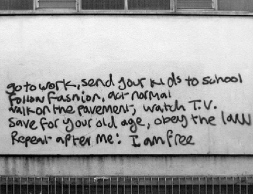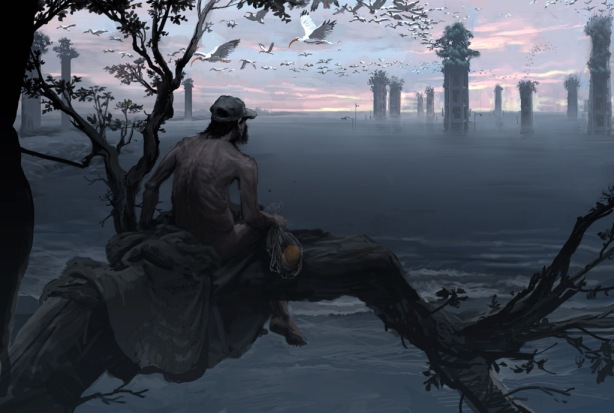The initial trailer for the film adaptation (and I use this term loosely) of Max Brooks’ 2006 novel World War Z premiered last week. I’ll get to my take on it in a minute, but the most noticeable and interesting thing about the trailer’s release was the amount of negative backlash toward it from fans of the book. From what I saw on twitter, comments on the trailer’s youtube, and elsewhere, the level of discontent from fans was (is?) at levels I think of as usually reserved for older, or at least more, I dunno, “canonical” books and characters (Beowulf and certain adaptations of Alan Moore come immediately to mind). Not that some genre fans don’t get all uppity about even the slightest changes made when their beloved, recent texts are translated to film, and often understandably so, but I don’t think I’ve ever seen the level of ongoing hatred toward a film that, to be honest, looks like it could be quite good.
As someone who spends a lot of time reading and thinking about science fiction, post-apocalyptic stories, horror, and the like, and who is a fan of said genres, I understand being nitpicky about changes made and pointing out why they make sense or don’t. I am also a huge fan of Brooks’ novel, and have taught it in a college Intro to Fiction course with great success. I’m sympathetic to gripes about changes, but the people condemning the film entirely are going too far in a way that makes them look like foolish Star Wars dorks. Here’s why: There’s absolutely NO WAY you could create a faithful film adaptation of this book (as Arleigh over at Through the Shattered Lens rightly notes, this faithful version would need to be done as a serial on [cable] TV). It’s just not possible. Additionally, since the film began production and info about it started being leaked, fans of the novel who were paying attention have known about certain changes and should probably be resigned to a very different story than the one they loved.
So, to my mind, the bulk of loudmouth, purist fans trashing a film they haven’t seen are engaging in a kind self-important rhetoric without any real function beyond proving that they read it first and are “better” genre fans than those who are willing to say they’ll see the film with an open mind and may even like it. They posture that they won’t even watch it but will spend hours online telling everyone else why it will be so awful. They’re kind of like the kid back in school who knew everything about Star Wars or Harry Potter or whatever and who lived for being a genre pedant who talked down to you and ruined it for everyone else. Such behavior is reactionary and dumb and fundamentally anti-fun.
That said, I would argue that the film version of World War Z, so far as the trailer lets on,does deviate significantly enough from the novel that it would be right, or at least in better faith, to retitle it something else with a sub-title explaining “inspired by Max Brooks’ World War Z” (an argument I’d also make, though more emphatically, for the poorly titled, Will Smith vehicle I am Legend). Or, even better, let it slip into more fictional territory and say: “Based on the true accounts of the zombie war as told in Max Brooks’ World War Z.” To nitpick a bit, the title actually was already apparently changed to omit the subtitle “An Oral History of the Zombie War.” And I’m actually surprised that Brooks didn’t push for something like this given that the entire structure of the storytelling (ie, the multivocal, Studs Terkel-inspired, interview format) seems to have been replaced or sidelined in favor of a pretty standard action, hero’s p.o.v. format. That and retaining the title as “new” for the possibility of doing it in the novel’s style via a serialized, episodic TV format down the road. But I guess WWZ is a catchy title, so I won’t let this usage ruin my potential for enjoying the film they are actually making.
So, here’s the trailer. A few thoughts on it vis-a-vis the novel after the cut:





You must be logged in to post a comment.